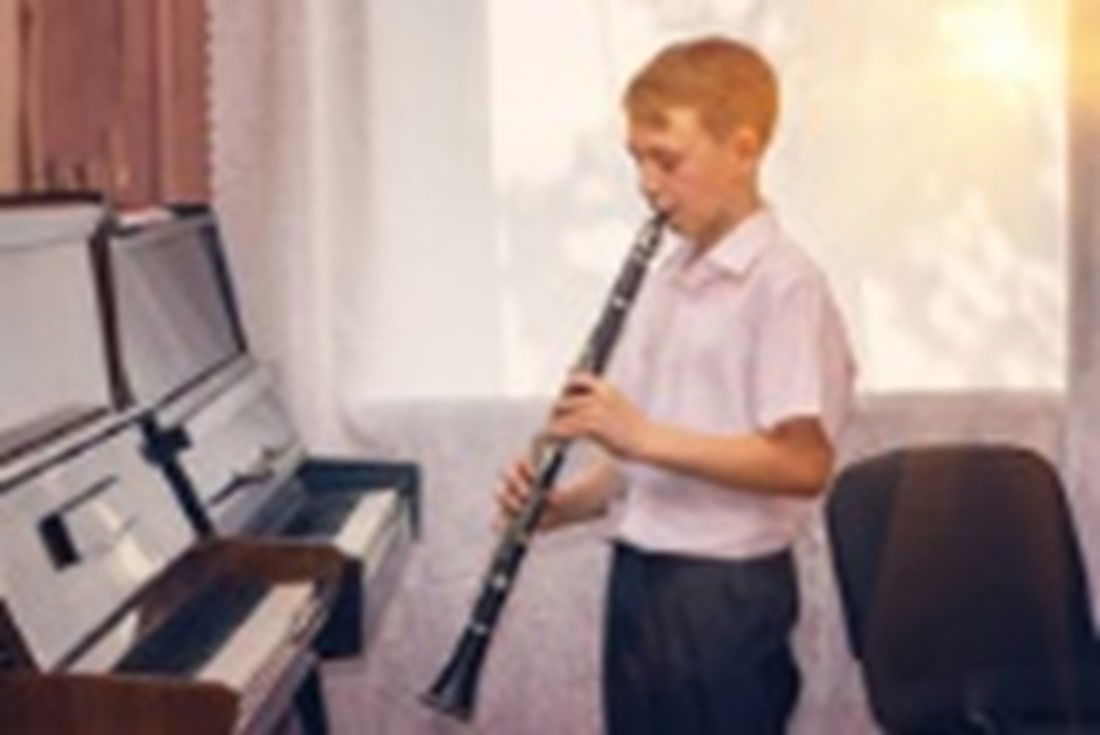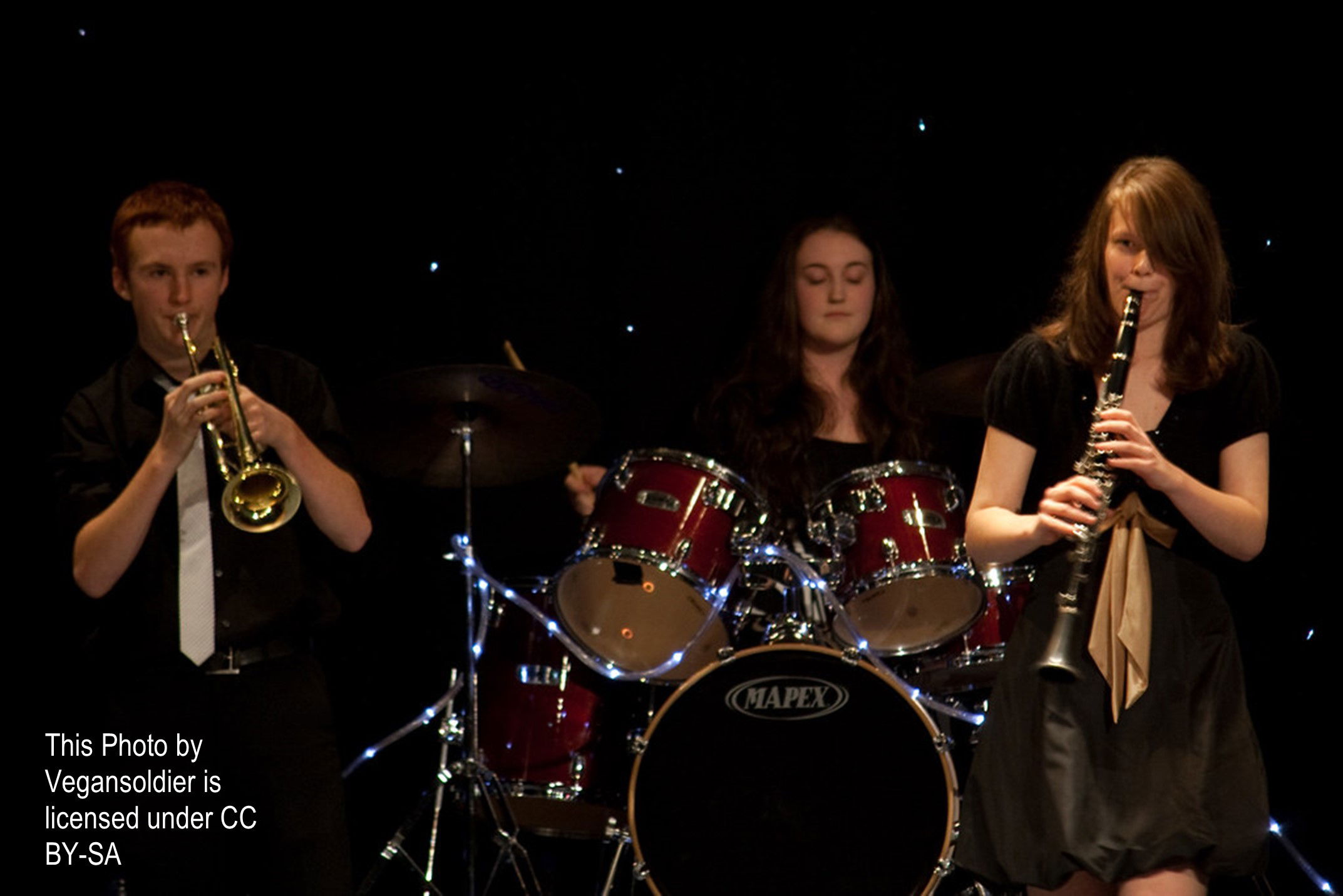Maintaining Your Music Skills During a Break

For music students of all sorts, whether they are in Concert Band, a Choral Group or String Orchestra, whether in public or private school, homeschool or private lessons, the break from music lessons and group rehearsals can be a challenging time. It's essential to keep your musical skills sharp, even when you're not attending regular rehearsals. Whether it's a summer break, a holiday vacation, or any other period away from your ensemble, there are various ways to ensure that you maintain your skills and come back stronger. In this article, we will explore some practical suggestions for staying in musical shape during your group's time off.
Many consider the human voice to be an instrument, so, in this article, we’ll include the voice when speaking about instruments in general.

1. Practice Your Instrument
This may seem so obvious, but it is the most important thing you will need to do. The rest of this article will help you find ways to make it interesting, enjoyable and rewarding.
In some situations, the first thing that you may have to do is ask the music teacher whether you can take the music home with you during the break. If this is possible, your efforts to stay sharp will be easier. You might also ask if you can make copies of the music just for practice purposes. The music teacher will probably let you do that, having been impresses with your desire to maintain your music skills.
The most obvious but essential way to maintain your skills is by practicing your instrument regularly. Dedicate some time each day to play your instrument, even if it's just for a short while. Start with scales, arpeggios, and exercises that target specific aspects of your playing, such as tone quality, articulation, and technique.
Then, practice a piece or two that you’re good at, something that you consider “fun”. After that, tackle a piece that you haven’t quite mastered yet, even if you’re on summer break and you fumbled your way through it at the spring concert.
The best way to achieve that is to use what’s called bracketed practice. Find the place in the music that’s giving you the most difficulty. Slowly work through the difficult part. Once you have mastered it at a slower tempo, play it a bit faster each time until you’re playing it at the correct speed. Then, add a couple of measures before and after the difficult part, so that you’re playing it in context. After a few times of playing that, add even more measures before and after until you play the whole section as one well-rehearsed piece of music.
After all that hard work, end your practice with another piece that you like to play.
This should take you between 15 and 30 minutes a day. Maybe you can aim for three or four days a week. It’s a break, so you’ll be doing other things, but while you wait your turn to take a shower or something, you can squeeze in a few minutes of playing. Even five or ten minutes of playing or singing a day will help you maintain your skills.
2. Set Goals
During your break from regular rehearsals, it's a good idea to set clear and achievable goals for your musical development. These goals could be related to improving a particular technique, mastering challenging pieces, or enhancing your overall musicianship. Setting goals will help you stay motivated and measure your progress.
Sometimes, the goal might be as simple as deciding to extend your range by a note or two. For singers, this requires some extra breath control and throat shape techniques. For string players, the lowest notes are set, but those upper notes can sound screechy if not played correctly. Wind players have a variety of obstacle to tackle in order to stretch their ranges. Now might be a good time to remember all those tips that the teacher gave while you were in class.
3. Explore New Repertoire
In the best case scenario, you have some of your sheet music during the break. If not, you can explore new pieces on your own. Find solo repertoire, etudes, or transcriptions that pique your interest. Learning new music will not only keep you engaged but also broaden your musical horizons.
There may be some pieces on-line that you can download, especially if they’re in the public domain. Salt Cellar has a few pieces for solo instruments and duets. Fascination With You is a mysteriously romantic, light jazz instrumental solo for a variety of instruments. Come Thou Fount of Every Blessing is a flute and recorder duet with piano accompaniment that has a somewhat Celtic sound about it. This arrangement adds some classical elements like escape and passing tones and a venture into the relative minor key.

4. Play with Others
If possible, try to find opportunities to play with other musicians, even informally. Jamming with friends, participating in community ensembles, or collaborating with fellow band members can be a fun and productive way to keep your musical skills active.
There are quite a few community bands and choirs that meet to rehearse and play only during the summer. Others welcome students for their summer band or choral concert series. If you live in a small town, there may be a volunteer fire department that needs players for their Fourth of July parade. String players may be able to collaborate to form a small group to play for community events, retirement communities and children’s homes.
If you belong to a church or synagogue in a larger town, you might organize a talent show as a fund raiser for a local food bank, children’s home or pregnancy resource center. Invite students from all the local high schools, homeschools and colleges to form small ensembles. This will provide not only needed funds for the charity, but an opportunity for students to maintain their music skills with a definite goal.
5. Record Yourself
Recording your practice sessions and performances can be incredibly valuable. It allows you to assess your progress objectively and identify areas for improvement. Additionally, listening to recordings of your playing can help you develop a critical ear and refine your musicality.
If you have access to accompaniment tracks, you can record yourself playing along with them.
6. Attend a Workshop or Music Camp
Consider enrolling in a workshop, or music camp during the break. These events can provide a structured learning environment and expose you to different teaching styles and techniques. They also offer opportunities to meet other passionate musicians and share experiences. You may find a private music teacher to give you some pointers in a lesson or two.
7. Study Music Theory
While it may not be the most exciting aspect of music, studying music theory can be highly beneficial. Understanding the theory behind the music you play can improve your sight-reading skills, aid in memorization, and enhance your overall comprehension of compositions. You’ll also have a better understanding of what you’re hearing when you listen to music.
8. Listen to Music
This is the follow-up step to studying music theory. Listening is a crucial part of musical growth. Use your break to explore different genres, styles, and artists. Pay close attention to the nuances in their performances, and try to incorporate what you learn into your playing. This can help you develop a deeper understanding of music and enhance your interpretation of pieces. Personal Story – When I play trumpet in church, I often incorporate some classical music forms into the playing of hymns. I also use some jazz or blues techniques to make the song more interesting. (I have to go light on the jazz and blues – I don’t want to purposely offend.)

9. Play or Sing Silently
Even without your instrument, or being in a place or situation where you can sing out loud, you can still practice silently. It’s almost amusing to see music students, whether high school or college, sitting in a place like a library and, being bored, seeing their fingers move as if they are playing their instrument. Pianists are drumming fingers silently on the table. Wind players are twiddling their fingers in front of them as if fingering their instruments. Singers may have a far-away look in their eyes as they review the music.
If you need to, carry a bit of music with you, or, even better, memorize some of the music so that you can play it whenever you need to, with or without making a sound.
Personal Story – There are some pieces that I learned early in my music that I can still play, visualizing the music as I play. It makes life fun later.
Conclusion
A break from group rehearsals doesn't have to mean a break from musical growth. By following these suggestions, you can stay in top musical form and return to your music ensemble even better than before. Remember that consistency is key, and maintaining your skills during the break will pay off in the long run. So, pick up your instrument and clear your throat, set your goals, and continue your journey toward musical excellence.
Salt Cellar Creations understands the need for maintaining your skills during a break. We have a growing library of pieces for soloists and small groups. Explore the available music HERE.
We have sold music not only in the US but in Canada, the United Kingdom, France, Australia, New Zealand and Austria. Please visit the WEBSITE or CONTACT US to let us know what we can do for you!